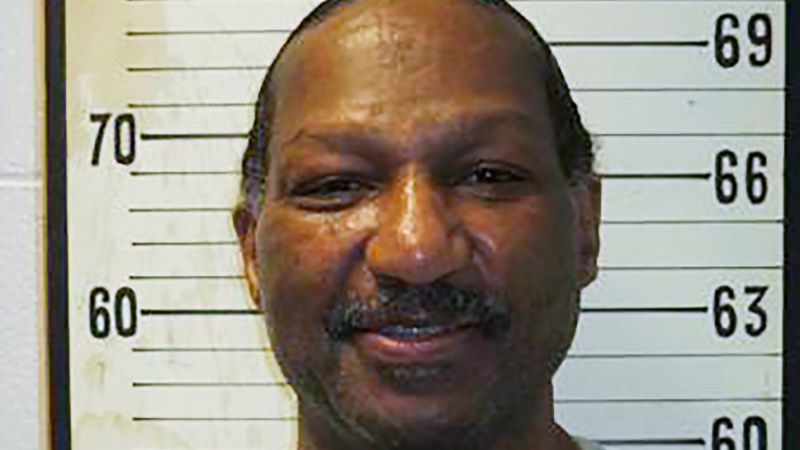Education
Tennessee to Execute Byron Black Despite Controversial Heart Implant Issues

Tennessee is set to execute inmate Byron Black on Tuesday, October 3, 2023, for the 1988 murders of Angela Clay and her two daughters, Lakeisha and Latoya Clay. This execution is marked by controversy due to concerns raised by Black’s attorneys regarding a medical device implanted to regulate his heartbeat. They argue that the device, known as an implantable cardioverter-defibrillator (ICD), could cause him severe pain during the lethal injection process.
The legal battle surrounding Black’s execution has intensified in the weeks leading up to this date. His attorneys have requested that the ICD be deactivated before or during the execution to prevent it from administering shocks that could lead to a “prolonged and torturous death.” They assert that such an outcome would violate the Eighth Amendment protection against cruel and unusual punishment.
“I don’t want him to suffer. I do not want him tortured,” said Kelley Henry, Black’s attorney and chief of the capital habeas unit for the Federal Public Defender in Nashville. Henry describes Black’s situation as the “first of its kind,” highlighting the ethical dilemmas that arise when medical technology intersects with capital punishment.
The American Medical Association has stated that physicians must not participate in executions, emphasizing a commitment to preserving life. In this case, Tennessee officials have indicated they lack a medical professional willing to deactivate the ICD, as doctors from a Nashville hospital have refused to be involved. The state argues that Black will not suffer during the execution, claiming he would be unconscious if the ICD activates.
On Friday, September 29, 2023, Black’s legal team appealed to the U.S. Supreme Court for a stay of execution after the Tennessee Supreme Court ruled that Black’s execution could proceed without deactivating the ICD. Henry clarified that the focus is not merely on delaying the execution but on ensuring that Black does not endure an unnecessarily painful death if the execution proceeds as planned.
The Tennessee Department of Correction has referred inquiries to Attorney General Jonathan Skrmetti, who stated, “Thirty-seven years have passed since Black brutally murdered” the Clay family. He emphasized that courts have repeatedly rejected Black’s appeals and that the state remains committed to seeking justice for the victims’ family.
Black was convicted of the murders of Angela Clay and her daughters on March 28, 1988. Prosecutors allege that Black killed them while on a weekend furlough from a previous sentence for shooting Angela’s husband. The victims were discovered in their apartment with gunshot wounds, and forensic evidence linked Black to the crime.
His attorneys argue that Black’s health condition complicates his impending execution. They describe him as a “frail, wheelchair-bound man” suffering from multiple health issues, including dementia and congestive heart failure. In addition to the ICD concerns, they are advocating for clemency based on Black’s alleged intellectual disability, which they argue should render him ineligible for execution under the Eighth Amendment.
Black received his ICD in May 2024, which functions as both a pacemaker and a defibrillator. The device is designed to deliver shocks to the heart in the event of arrhythmias, with the potential for profound discomfort. Dr. Jonathan Groner, a professor emeritus at Ohio State University, noted that such a shock can feel like being “punched in the chest.”
The legal proceedings have seen conflicting expert testimonies regarding the implications of the ICD during the execution. While the state’s experts indicated that the lethal injection drug, pentobarbital, would render Black unconscious, an expert for Black contended that he would remain aware but unresponsive, thereby experiencing pain.
The Davidson County Chancery Court previously ruled in Black’s favor, mandating that state officials arrange for a medical professional to deactivate the ICD at the time of execution. However, this order was later modified when it became clear that Nashville General Hospital would not participate due to a lack of appropriate medical staff willing to attend the execution.
A statement from Nashville General Hospital clarified its refusal to cooperate, asserting that the correctional healthcare provider did not follow proper protocols when requesting assistance with the ICD. The hospital emphasized it does not have a role in state executions and described the request as outside of their agreement.
In a subsequent ruling, the Tennessee Supreme Court sided with the attorney general’s office, stating that the order to deactivate Black’s ICD constituted a stay of execution that surpassed the authority of the lower court. The Supreme Court indicated that while their decision does not prevent an agreement regarding the deactivation of the ICD, any potential arrangements must comply with legal standards.
As the execution date approaches, the situation remains fraught with legal and ethical complexities, highlighting the intersections of healthcare, law, and capital punishment in the United States.
-

 Technology5 months ago
Technology5 months agoDiscover the Top 10 Calorie Counting Apps of 2025
-

 Technology2 weeks ago
Technology2 weeks agoOpenAI to Implement Age Verification for ChatGPT by December 2025
-

 Health3 months ago
Health3 months agoBella Hadid Shares Health Update After Treatment for Lyme Disease
-

 Health3 months ago
Health3 months agoAnalysts Project Stronger Growth for Apple’s iPhone 17 Lineup
-

 Health3 months ago
Health3 months agoErin Bates Shares Recovery Update Following Sepsis Complications
-

 Technology5 months ago
Technology5 months agoDiscover How to Reverse Image Search Using ChatGPT Effortlessly
-

 Technology3 months ago
Technology3 months agoElectric Moto Influencer Surronster Arrested in Tijuana
-

 Technology2 months ago
Technology2 months agoDiscover 2025’s Top GPUs for Exceptional 4K Gaming Performance
-

 Technology5 months ago
Technology5 months agoMeta Initiates $60B AI Data Center Expansion, Starting in Ohio
-

 Technology5 months ago
Technology5 months agoRecovering a Suspended TikTok Account: A Step-by-Step Guide
-

 Health5 months ago
Health5 months agoTested: Rab Firewall Mountain Jacket Survives Harsh Conditions
-

 Lifestyle5 months ago
Lifestyle5 months agoBelton Family Reunites After Daughter Survives Hill Country Floods





















